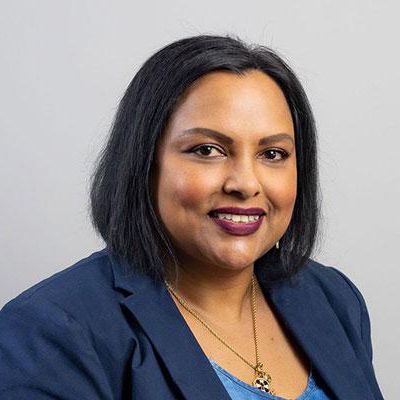When we were asked to sponsor one of the categories at the Women in Tech Excellence Awards, the choice was simple: IT Leader of the Year. With such a wide range of great categories to choose from, that might sound a little surprising – but as I’ll explain, there are a number of reasons why it isn’t surprising at all.
Data from the Harvey Nash Tech Survey 2021 shows that women still only occupy 10% of leadership positions in the tech industry. And yet companies with at least one woman on the board of directors outperform those without any women by 26%, according to Gartner.
If you’re doing the same maths I’m doing, then it’s clear that it just makes good business sense to employ women in leadership positions. And that’s ignoring the factors of fairness, equality of opportunity and inclusion from the equation. [And you really shouldn’t be excluding those from the equation. Just saying.]
And the more women leaders there are in your business, the more women you will attract into your business at all levels, making it more representative of society as a whole. That’s why I believe so strongly that it’s vital to showcase the women leaders in our industry; to me, it’s the key to addressing the gender imbalance that holds our industry back.
We all know representation matters – what you can see, you can be. For me as a gay man starting my career back in the 90s, for the longest time I didn’t feel I belonged because I didn’t see anyone like me. If I wanted to get on, I had to be something else, had to be someone else. What a waste of time!
It has been hugely important to me (although thankfully less rare over the years) to see successful LQBTQ+ people in leadership positions. People like Inga Beale, now Dame Inga and former CEO of Lloyd’s of London, who came out as bi in 2008, or Jason Grenfell-Gardner, the very first (and until 2014, the only!) openly gay CEO of a publicly traded American corporation, and more recently Beth Ford, President and CEO of Land O’Lakes, or Tim Cook, CEO at Apple.
Who I am doesn’t need to be the limit of what I can be.
And what unites these inspirational leaders, is not only the signal their success sends to others of what is possible, but their commitment to using their influence to champion diversity, inclusion and belonging.
I take very seriously my responsibility as a business leader who just happens to be gay to be a visible, positive role model to others. As a leader from an under-represented group, whether you like it or not, you become an example to others of what is possible – and, just as important, a symbol of what your company stands for.
When I became CEO of Scott Logic at the start of this year, I got straight to work on the business strategy for the year ahead with our executive team. Even in the middle of a pandemic, when many companies were playing it safe in order to survive, I’m incredibly proud that we chose to prioritise tackling the gender imbalance as a strategic objective that would underpin our success in the years to come.
At Scott Logic, who you are won’t limit what you can achieve.
We’ve made solid progress this year, improving our employment policies to make Scott Logic a more attractive place for women—and everyone else—to work. I’ve had the privilege to welcome onto the executive team our new Chief Talent Officer, Myra Cooke, who will be creating our future People Strategy with a heavy focus on culture and inclusive practices to foster a work environment where all our colleagues can thrive.
We’ve also welcomed senior leaders like Cat Koris and Marsia Brancken into our consultancy, and not only are they ensuring excellence in delivery to our clients, they’re also actively inspiring future leaders at Scott Logic and beyond. Cat is on the programme panel for Empowering Women to Lead Digital Transformation in Scotland, an initiative we’re proud to sponsor. She’s actively involved in supporting the cohort of future leaders on the programme.
As crucially important as it is for us to support programmes and initiatives like these, I’m determined that our work in this area strives for more fundamental, structural outcomes. We deliberately phrased our strategic bet in this area in this way: “we believe actively tackling the lack of gender diversity in our business and industry will result in some initial steps toward the societal norm where all feel they belong.”
It’s the normalisation that’s essential. As Mary Ann Sieghart’s excellent book The Authority Gap so persuasively attests, all of us – men and women alike – have been programmed to invest men with more authority than women in any given situation. This social conditioning is deep, insidious and very hard to reverse – but not impossible. As Sieghart explains, there’s a whole range of legislative, organisational and individual changes we can make to close the gap – and we at Scott Logic are committed to playing our part.
The goal of these efforts is not only a better world for women, but a better world for us all. Just as gender-diverse companies perform better, research shows that people living in societies with better gender equality are happier, with better all-round life satisfaction.
Come on now, who doesn’t want a New Normal like that? ___
P.S. – Huge congratulations from all of us at Scott Logic to Dr Nicola Stokes, Financial Services Technologist at IDA Ireland, who won IT Leader of the Year at the Women in Tech Excellence Awards ceremony! A very worthy winner and a truly inspirational leader.


